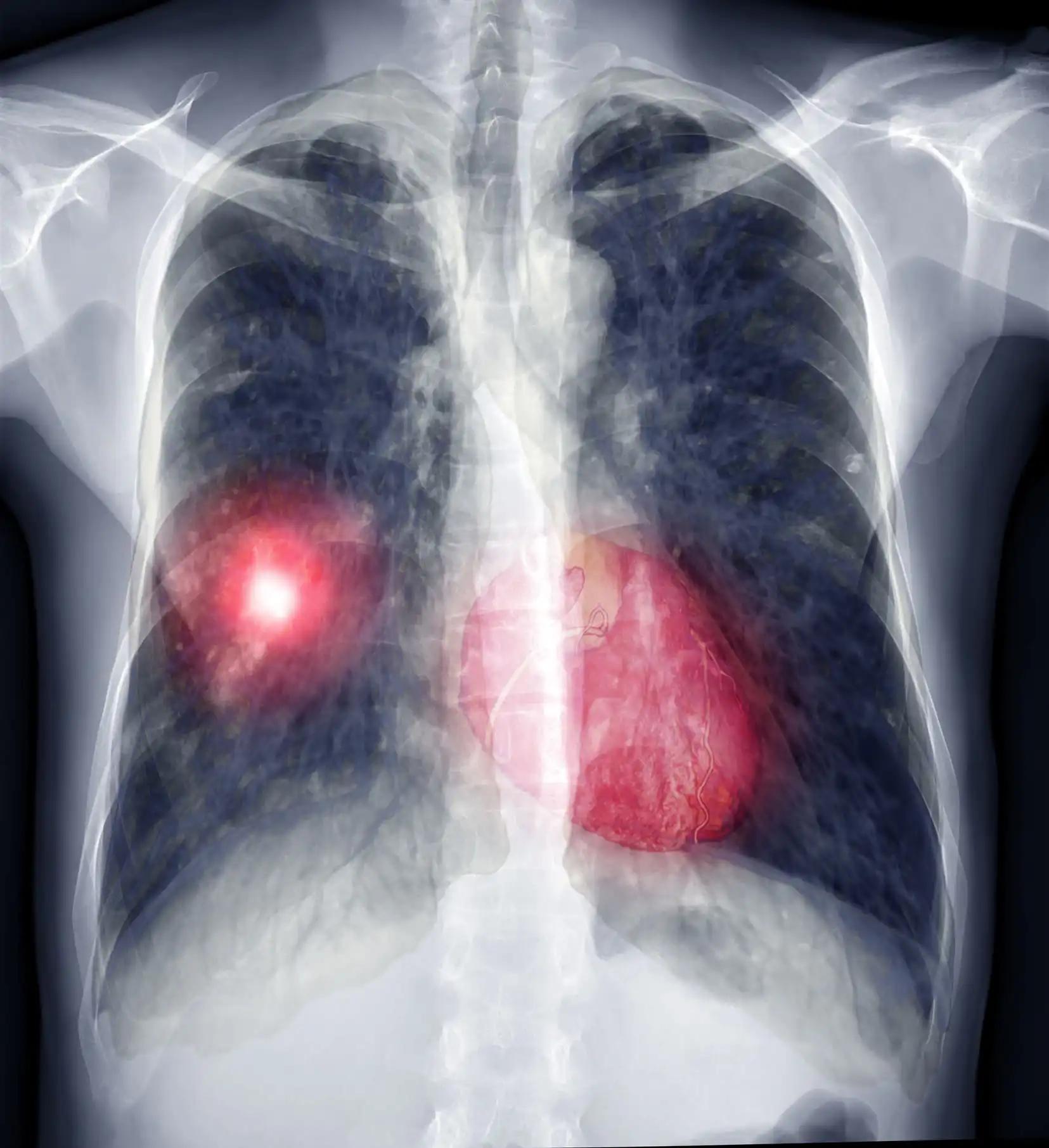KEY TAKEAWAYS
- The study aimed to investigate the association between visceral pleural invasion, node upstaging, N2 skip metastasis, and their impact on survival in patients with small NSCLC.
- Researchers noticed that visceral pleural invasion independently correlates with N2 skip metastasis and significantly worsens DFS and OS outcomes in NSCLC patients.
Lung lymphatic drainage predominantly follows a peribronchial route, yet there’s speculation that visceral pleural invasion may disrupt this pathway.
Fabio Minamoto and the team aimed to probe the relationship between visceral pleural invasion, node upstaging, N2 skip metastasis, and their consequential impact on survival within a cohort of patients diagnosed with non-small cell lung cancer (NSCLC) measuring 3 cm or smaller.
They performed an inclusive analysis by retrospectively querying an institutional database of lung cancer resection for all patients diagnosed with clinical stage IA NSCLC between June 2009 and June 2022. Baseline characteristics, as well as clinical and pathological staging data, were collected. Patients were then categorized into two groups: the non-VPI group, characterized by negative visceral pleural invasion, and the VPI group, characterized by positive visceral pleural invasion. The primary results analyzed encompassed the occurrence of nodal upstaging, skip N2 metastasis, and recurrence.
About 320 patients were analyzed, with 61.3% being women and a median age of 65.4 years. Pleural invasion was observed in 44 patients (13.7%). The VPI group exhibited larger nodules (2.3 vs. 1.7 cm; P < 0.0001), higher 18F-FDG uptake (7.4 vs. 3.4; P < 0.0001), and lymph-vascular invasion (35.7% vs. 13.5%, P = 0.001).
Additionally, the VPI group presented with more nodal disease (25.6% vs. 8.7%; P = 0.001) and skip N2 metastasis (9.3% vs. 1.8%; P = 0.006). VPI emerged as a statistically independent factor for skip N2 metastasis. Recurrence was noted in 17.2% of the population, with 5-year disease-free (DFS) and overall survival (OS) being worse in the VPI group.
The study concluded that visceral pleural invasion stands as an independent factor significantly associated with N2 skip metastasis. Moreover, it notably contributes to worse DFS and OS outcomes in patients with NSCLC.
The study received no funds.
Source: https://pubmed.ncbi.nlm.nih.gov/38484584/
Minamoto F, Araújo P, D’Ambrosio P, et al. (2024). “The association of visceral pleural invasion with skip N2 metastasis on clinical stage IA NSCLC.” Clinics (Sao Paulo). 2024 Mar 13;79:100334. doi: 10.1016/j.clinsp.2024.100334. PMID: 38484584; PMCID: PMC10951467.



